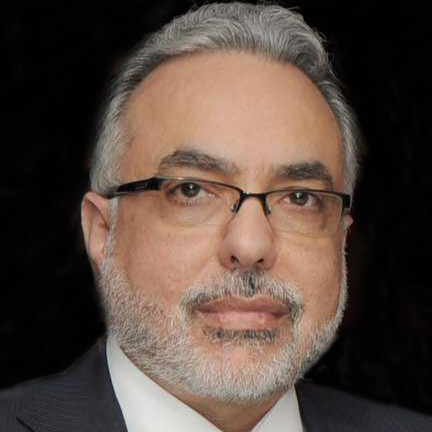
With the increasing number of Lebanese startups and SMEs working to access new markets, the UAE has become an attractive choice to set up a business. We’ve reached out to Walid Jahchan, Managing Partner at Forward Consultants, who was happy to provide us with a well-rounded view of what it takes to register a business in the UAE.
Welcome to Safety and Stability
The United Arab Emirates has been and increasingly becoming the most attractive investment hub in the region. With its visionary leadership and highest safety and stability levels; it offers the best opportunities for living and working in a prosperous outlook in a safe environment.
The country is a federation composed of seven Emirates, each offering several free-zone regions for investors to choose from according to their specialization and preferences.
The Legal Background
The business laws are constantly evolving, and recent changes allowed foreigners to fully own their businesses without the need for a sponsor or an agent, for most of the activities. However, some activities still require the association of a national citizen or agent.
There are some variances in the commercial regulations between the various Emirates, and their various free zones as well. Each investor needs to get the appropriate counseling to decide where the most suitable and convenient region is for his venture.
It is important to choose wisely in which Emirate you would register your business, and several factors will guide your selection, depending on the nature of the business and the suitability and convenience of the applicable regulations. Keeping in mind, that some activities are available in specific regions only.
The Tax Impact
The UAE tax laws are very straightforward and relatively friendly. There are some indirect taxes, such as the Customs Duties at 5%, and Excise Tax which relates only to certain specific items such as tobacco products, energy drinks, and sugared beverages…
The only tax that impacts the businesses is the Value Added Tax, which rests at a low 5%. Bearing in mind that any business that is registered in VAT will not be burdened with this tax anyway.
The VAT application is very simple: every supply is taxable. Only very few defined activities are exempt.
The Federal Tax Authority (FTA) in UAE, is the authority regulating, managing, and controlling the taxes. To simplify the process for businesses, the FTA assigned many Tax Agents, who are constantly trained in tax application matters, to assist and support the businesses.
Although the VAT application in UAE is very simple, it is highly recommended to retain the services of a Tax Agent or a tax consultant to offer guidance and consultancy and avoid tax exposures.
Starting a new business in the UAE
The process is very fast, efficient, and costs effective. You need to specify the activity required, the Emirate and region preferred, and prepare the necessary documents. A new company can be established within one week only.
It is much easier for individuals to register a business as partners. Corporate partners must supply a load of documents that all need to be translated, certified in their country of origin, then certified again in UAE to be valid. Moreover, if the corporate shareholder has other corporates in its shareholding structure, then we must do the same cycle as well.
Several license categories exist in UAE, ranging from freelance, professional, trading, and industrial. With so many diversities within each category, an investor should study the options with the help of a professional, to decide his best choice.
Individual shareholders/partners must get the following:
- Passport copy
- One photograph
- Proof of residence in the home country
- Suggested company name options
- Designate the intended business activity
- Fill a simple application
- Submit the file and pay the costs
You will get an officially registered company in a few days. Companies can be formed with one partner or more.
Visas
The Residence Visa application is simple as well. Partners can get it as business owners/partners, while for employees, it is preferred to have a certified and attested university degree, as well, for certain lead positions.
Visa types are:
- Normal residence visas can be valid for two or three years, while other visa options depend on the individual status of the applicant.
- Investor visa: for investors who contribute a certain amount of money in real estate and business capital.
- Retiree’s visa: for retirees of a certain age, who own property and have a designated stable income.
- Golden Visa: for distinctive persons with special talents, high GPA graduates, Ph.D. degrees holders, certain professional occupations.
Most free zones offer a shared workspace facility that can be part of the registration fees, or for an additional fee, depending on the zone. You can also choose your workspace or independent office. There are many Business Centers that offer shared workspaces as well, of different sizes and facility arrangements according to your needs.
Like all regulations all over the world, a business entity in UAE must keep accounting books and records and produce audited financials, and register in VAT when qualified, and submit returns periodically. The processes are easy and direct, and the costs are relatively simple as well.
The Opportunity and Risk
The only risk is not taking the opportunity!
The UAE offers great opportunities and unlimited options for business owners and innovators with creative ideas, and for those with the capital available to invest:
- A well-designed road network with highways connecting all the Emirates and within each Emirate as well,
- A public transportation system with a state-of-the-art metro line that connects most parts of Dubai altogether,
- A smart government system that allows you to perform most of your official processes online and automatically,
- Constantly evolving laws and regulations that are adapting to the modern world requirements,
- Aside from the malls and skyscrapers, the UAE is the land of museums of various local and international heritages, Opera house, Expo2020, one of the biggest book fairs in the region, beautiful parks, greenery that is dearly cared for, charming beaches, fancy resorts, and a dessert that became a tourist attraction, in addition to the most active exhibition centers that bind the world together,
- The UAE motto “there is nothing impossible” is true to the heart of its leaders and people together. All foreign residents enjoy this opportunity, and they all have the freedom of choice to delve into this environment.
How to Start
- You can do all the processes independently by yourself, for most of the UAE regions and in the mainland as well. Some free zones require that you deal with them through a professional partner/agent.
- In some sophisticated structures, you will need a lawyer and a consultant to help in setting up your term sheets and shareholders’ agreements.
- For normal and simple partnerships, a consultant can assist you in all your needs.
- We recommend that you discuss with a consultant before starting any process, to avoid any delicate complications and to ensure a smooth registration process.
Get your ideas together, contact a consultant, discuss the options, decide, and come along.
About the Author

Walid Jahchan, CPA, Registered Tax Agent, Managing Partner
Walid has 34 years of experience in Auditing and Financial Consultation. He started his business in 1987 and established several specialized companies throughout the years in Lebanon and the UAE. He performed scores of audit missions, due diligence, feasibility studies, valuations, corporate mergers, and acquisitions and offered his expertise to a wide range of companies across multitudes of sectors worldwide: Lebanon, UAE, KSA, Canada, USA, South Africa, and Hong Kong.
Walid holds a bachelor’s degree in Business Administration and Finance. He is a Certified Public Accountant (CPA) licensed from the State of New Hampshire, USA. He holds several diplomas and attestations in VAT and IFRS. Walid is a Registered Tax Agent in the UAE.
He can be contacted by mobile: +971-50-230-6678 and by email: walid.jahchan@4wardconsultants.com







